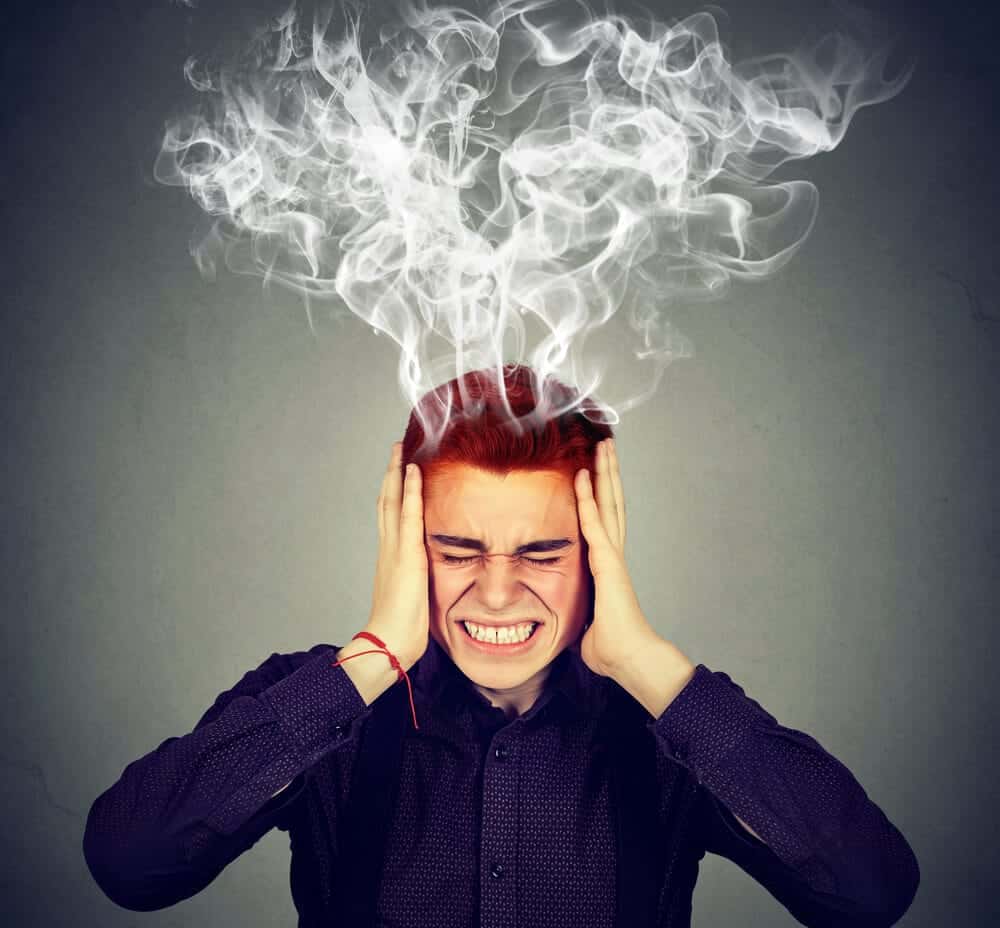For people addicted to nicotine, this substance acts as an additional supplement of energy. Even though nicotine is addictive just like the illegal drugs, it is available for every legal age person without any limitations. The adverse short and long-term side effects of nicotine intake are well known to people, but the habit often turns out to be stronger than the power of will. Giving up smoking is an extremely tough task.
Nicotine boosts the release of two essential hormones in the human brain, namely dopamine, and serotonin. Those chemicals make brain function better on a cognitive level. For this reason, smokers feel that after a cigarette or two their concentration and thinking get better.
 As mentioned above, smoking has a substantial effect on human body, and it alters its functioning to a great extent. For this reason, giving up smoking is a trying experience. When a person decides that the cigarette they just finished would be their last, they often don’t imagine that the power of will is only one thing they will need to cope with the harmful habit. The symptoms of nicotine withdrawal can emerge shortly after the last cigarette and get rather intense.
As mentioned above, smoking has a substantial effect on human body, and it alters its functioning to a great extent. For this reason, giving up smoking is a trying experience. When a person decides that the cigarette they just finished would be their last, they often don’t imagine that the power of will is only one thing they will need to cope with the harmful habit. The symptoms of nicotine withdrawal can emerge shortly after the last cigarette and get rather intense.
Quit smoking timeline day by day
0:00 – 1 hour: The cigarette you just threw into the trash-can was your last. You decided so, and you are very proud of yourself. Also, you are very determined. And a little scared, too. Or, you are already in a panic thinking that you cannot go a lifetime without cigarettes. Remember, that you don’t have to plan for a lifetime and eternity this very moment. One step at a time and one foot in front of the other is the best way to go. Have a cigarette-free day today. Tomorrow is always a day ahead.
1 hour – 4 hours: Your mind starts playing tricks on you. Perhaps your decision was too abrupt? What if you quit smoking in a week, next Monday or on the first day of summer? What if you wait until the New Year’s or your next birthday? That would be symbolic and so much more meaningful. After all, who quits anything on a random Thursday? If your mind tells you any of this, know that it’s the addiction speaking. Do anything that doesn’t harm you or anyone else to take your thoughts off the topic.
4 hours – 10 hours: If you thought the daytime was the hardest, here comes surprise! And it’s not a delightful one. Being tired from all the thinking and distracting, you are probably exhausted, but you experience problems falling (or staying) asleep. It is so because of nicotine and its adverse effect on your body. Hang in there; your body needs a couple of days to get things back to normal.
10 hours – 24 hours: Let’s be honest, you are not the best company right now. There’s a buzz in your head, and you haven’t had enough sleep to feel like a polite human being today. Even though quitting smoking is hard, don’t use it as an excuse to snap at others. The withdrawal symptoms are short-term, but the relationships with people usually last much longer, remember that.
If you unintentionally hurt someone during this time, apologize immediately and explain to them that you did not mean to do so. Tell them about your struggle and its emotional impact on you. Most people will understand you and encourage you about your healthy choice!
 24 hours – 48 hours: Is it a migraine? What if you take a small drag just to see if a headache goes away? What if only cigarettes can heal it? If you think so, remember, that nicotine is what caused that headache in the first place. Your head does not naturally hurt; it does because something awful happens to it or its blood flow. In the case of nicotine withdrawal, the first two days are the hardest on your blood vessel, but the symptoms will go away very quickly.
24 hours – 48 hours: Is it a migraine? What if you take a small drag just to see if a headache goes away? What if only cigarettes can heal it? If you think so, remember, that nicotine is what caused that headache in the first place. Your head does not naturally hurt; it does because something awful happens to it or its blood flow. In the case of nicotine withdrawal, the first two days are the hardest on your blood vessel, but the symptoms will go away very quickly.
48 hours – 60 hours: By this time, you probably start to feel very stressed because of all the emotional and physical symptoms you had to encounter since your last cigarette. You’re restless and angry, your bowel movements are unpredictable, and your head hurts. Be kind to yourself and find some time to relax even if you think you can’t. Earlier you saw an excuse to smoke, right?
3 days – 1 week: Seeing everyone around you smoke seems unfair. You already dealt with the toughest symptoms, and they appear to lose their intensity by now, but the craving doesn’t disappear so quickly as well. In case a random person asks you to go out for a smoke, you are scared to join them without even giving it a thought.
For this reason, you need to tell everyone you usually smoked with that you quit and ask them to be supportive and not to offer you any cigarettes. If your friends continue to provide you with cigarettes and mock you by doing so, it’s time to stop calling those people friends.
1 week – the clear happy ever after: The first three days were the hardest, but now it’s been a week, and you are most likely surprised that time flies so quickly. Indeed, you’ve accomplished so much in such a little period! It’s time to be proud, feel better and enjoy your smoke-free life now!
How long does nicotine withdrawal last?
 When a person stops smoking, their body starts to function differently pretty quickly. However, the habit and the addiction usually make it very hard for the person trying to give up to go through the first days and weeks of parting with nicotine.
When a person stops smoking, their body starts to function differently pretty quickly. However, the habit and the addiction usually make it very hard for the person trying to give up to go through the first days and weeks of parting with nicotine.
The first week is the hardest one emotionally and physically. During this time, the body of the smoker restores its standard functions that were altered by the exposure to nicotine. Very often, this normalization process is rather unpleasant for the person experiencing it. The intensity of symptoms depends on the period a person smoked, the amount and frequency of the consumed nicotine.
For a heavy smoker, the first symptoms can come as quickly as within half an hour, while for the rest it will take a couple of hours before a thought to reconsider their decision to quit will cross their mind. Speaking of physical symptoms, it is fair to say that they are far from being pleasant as well. Those include a headache, insomnia, stomach pain, and dizziness. Coughing and fatigue may seem like symptoms of a beginning illness, but they are the evidence of healing.
The respiratory and digestive systems are getting rid of the harmful substance, and it takes a lot of energy of the body to do so. It is scientifically proven that nicotine leaves human body entirely in two hours, so a person quitting is likely to experience the urge to smoke the next cigarette within a given period. The initial symptoms include craving, followed by irritability, anger and lack of focus. In the following couple of days, an ex-smoker is likely to feel that the symptoms intensify.
Most ex-nicotine addicts describe them as a continuous buzz in their head that did not let them concentrate on their tasks and made them irritable, and unattentive. Most people feel that the intensity of the symptoms lessens in about three to five days. It is precisely the time body needs to get rid of the remains of the harmful substance and restore its normal functioning.
Quitting smoking: what to expect during the first week
Irritation, headache, and insomnia
 For a person giving up nicotine, it is not unusual to feel more annoyed and irritated at everything than usual. Explaining your possible change of mood to your loved ones in advance is a good idea. Being warned that you are going through a hard time, they will have more patience with you. However, knowing about such symptoms yourself, you should also pay more attention to how you react to different things and try to control your words and actions better.
For a person giving up nicotine, it is not unusual to feel more annoyed and irritated at everything than usual. Explaining your possible change of mood to your loved ones in advance is a good idea. Being warned that you are going through a hard time, they will have more patience with you. However, knowing about such symptoms yourself, you should also pay more attention to how you react to different things and try to control your words and actions better.
Headaches during the period of nicotine withdrawal are a doublable issue. While some researchers are sure that they appear due to the change of the blood flow to the brain, others say there is no direct connection. Still, regardless of the unclear nature of this symptom, headache is a widespread complaint of smokers who give up nicotine.
Insomnia and nightmares are two more “bonuses” that nicotine withdrawal often has. Since nicotine has strong psychoactive qualities as a stimulant, a sudden withdrawal from the drug can play tricks on your body, making you sleepy and foggy during the day and sleepless during the night. Moreover, the withdrawal may bring you weird dreams and even scary nightmares. The good news here is that the symptoms usually disappear completely within a week.
Is it the flu?
The fight with nicotine addiction can be a tiring and sometimes even a draining experience. If after giving up smoking you can feel flu symptoms like a sore throat, cough, sinus pressure and swelling coming, don’t worry. Those could also be symptoms of nicotine withdrawal. Still, if you feel too sick, it’s better to talk to your physician to eliminate possible health risks.
Is it food poisoning?
You might not know this until you give up smoking, but nicotine influences your digestive system a lot. The manifestation of nicotine withdrawal on a person’s bowel vary from case to case, but the chances of getting diarrhea or constipation are the highest.
Stressed, anxious and depressed
 Besides the unpleasant physical symptoms of nicotine withdrawal, there are negative psychological manifestations of the abrupt termination of smoking. Among many reasons smokers provide to justify their habit, one deserves particular attention. Smoking is said to help people as self-medication for stress, anxiety, and depression. This repeated activity allows smokers take their mind of stressful thoughts and take a small justified break from the activities that may depress them.
Besides the unpleasant physical symptoms of nicotine withdrawal, there are negative psychological manifestations of the abrupt termination of smoking. Among many reasons smokers provide to justify their habit, one deserves particular attention. Smoking is said to help people as self-medication for stress, anxiety, and depression. This repeated activity allows smokers take their mind of stressful thoughts and take a small justified break from the activities that may depress them.
When such a person gives up smoking, they often feel more stressed than before, because they don’t get a break from their activities and thoughts, so the stress accumulates and makes the person feel tenser. In this case, the best thing is to remember that the withdrawal symptoms last only a few days and that the overall negative impact of nicotine prevails its short-time “benefits” critically.
Inability to focus
As already said before the one and only good thing nicotine does is improve the concentration of a human brain. Thus, nicotine withdrawal will affect your cognitive abilities negatively in the short-time. Ex-smokers reported that they had problems concentrating on a task during the first days after giving up smoking. The reason for this symptom can be psychological as well; constant craving for nicotine and thinking about it inevitably affects a person’s productivity and concentration.
Compulsive craving for one more drag
For every nicotine addict, smoking is a physical and a psychological habit. Triggers for this habitual action develop and grow strong over time. Because of this, a quitting person is likely to experience a strong desire to smoke just one more cigarette when they find themselves in a situation where they would typically light up a cigarette. The habit is harder to fight when communicating with people who continue to smoke.
Quitting smoking: what happens in 2-4 weeks
 As you already know, the first week of quitting smoking is the hardest one both physically and emotionally. As the end of your first week in a new non-smoking reality approaches, the withdrawal symptoms usually seize, and the world starts to look much better.
As you already know, the first week of quitting smoking is the hardest one both physically and emotionally. As the end of your first week in a new non-smoking reality approaches, the withdrawal symptoms usually seize, and the world starts to look much better.
However, some symptoms may stay with you for several weeks. Insomnia is usually a symptom that goes away in the first week unless smoking is not the only reason for restlessness during the night. Even if your sleep is sound again, you might not feel energetic enough up to four weeks. However, your energy levels should go back to normal within four weeks for sure. Digestive problems, especially stomach upset, acute hunger, diarrhea, and constipation, should also be gone within up to a month.
Nonetheless, intense psychological craving can remain your most significant challenge for a while. Even if you notice that you experience the need to smoke more rarely than during the first week, it’s too early to decide that the habit is gone. A stressful or depressing situation can serve as a powerful trigger that will make you think like you need cigarette more than anything else in the situation you encounter. Also, people quitting smoking often find themselves in a blind corner: giving up smoking is stressful and to relieve stress they would usually lit up a cigarette.
You have to invent another activity for yourself that will help you reduce anxiety and unwind. Make sure the activity you choose is healthy though. Some recommend having a caramel or a mint candy every time you feel the craving to lit a cigarette, but such advice is hardly beneficial for your blood sugar levels. If there are exact moments during the day you would usually spend smoking, schedule something that would keep your mind off the topic for these time slots.
If you don’t, you may feel restless and bored throughout the moments when you would usually smoke. And it can lead to intense craving and stress. Planning small activities like making a cup of coffee, having a fifteen-minute walk around the block or watching a funny video on YouTube is a better idea than doing nothing and stressing about smoking.
Watch your plate (and your scales, too)
 Strong hunger and wolfish appetite often pursue a runaway smoker. Those physical symptoms develop quickly but don’t go away very easily. Many smokers eat out of habit to substitute smoking, but creating another addiction to replace the old one will not get you far. As the nicotine levels in the body decrease and disappear altogether, craving for energy-boosting products like sweets gets stronger.
Strong hunger and wolfish appetite often pursue a runaway smoker. Those physical symptoms develop quickly but don’t go away very easily. Many smokers eat out of habit to substitute smoking, but creating another addiction to replace the old one will not get you far. As the nicotine levels in the body decrease and disappear altogether, craving for energy-boosting products like sweets gets stronger.
Some people may see additional five to ten pounds on their scales in the first couple weeks after giving up smoking. Since the intensity of hunger and appetite usually decrease at the end of the first month, the added weight usually disappears pretty soon.
Since every case of nicotine addiction is individual, there are no universal timelines for the duration of symptoms, their development, and decrease. Still, doctors say that most physical symptoms are gone for good in days. However, emotional and psychological symptoms can stay with you much longer and create behavioral and psychological problems in the long run, unless they are appropriately addressed.
Free for life: week 5 and beyond
When the hardest four weeks of nicotine withdrawal are gone, the ex-smoker usually starts to feel much better. If you managed to get through all the distressing nicotine withdrawal symptoms, mentioned above, without lighting a single cigarette for an entire month, it is probably time to celebrate. Any of the physical symptoms that disappeared are not going to come back, and this is good news. The bad news is that psychological and emotional craving for cigarettes can flash any moment along your lifetime when the circumstances are right for it.
For this reason, an ex-smoker should always remember why they quit smoking, how harmful the habit is and how hard the quitting period was for them. Reminding yourself this every time a thought of smoking “just one more cigarette” is an excellent way to stay away from relapse.
Some ex-smokers experience melancholic and nostalgic moments when thinking about cigarettes. Daily habits are a large part of our life, so if you often smoked during the times you were in a good mood and relaxed, in a company of friends or with a loved one, you are very likely to miss the cigarettes because of the emotions you connected with them. There is practically nothing to be done about the memories about smoking. It is a part of your life that is in the past, a chapter that cannot be rewritten.
All you have to do is resist the temptation to smoke another cigarette and to remember that it was never cigarettes that made you happy. It is only your addiction wanting you to think they did.
 Whenever the emotional craving for cigarettes begin, remind yourself that the cigarette you want to light up will fuel your addiction and you will eventually have to go through the quitting process again. Or, the addiction can turn out to be stronger this time, and you will part with your new healthier lifestyle and have to deal with the health issues and side effects that smoking causes. Be your best friend, not your worst enemy.
Whenever the emotional craving for cigarettes begin, remind yourself that the cigarette you want to light up will fuel your addiction and you will eventually have to go through the quitting process again. Or, the addiction can turn out to be stronger this time, and you will part with your new healthier lifestyle and have to deal with the health issues and side effects that smoking causes. Be your best friend, not your worst enemy.
Spending time with smokers is not a good idea during the first month of giving up nicotine. During this period, the chances of relapse are the highest due to the intensity of physical and emotional withdrawal symptoms. The sight of your smoking companions enjoying their cigarettes can serve as a trigger for relapse or will make you feel angry and stressed. For this reason, try to avoid watching someone smoke while you are trying to quit. A good friend will understand you and support you, even if they are smoking and are not planning to quit.
How to win the fight with nicotine?
The first thing you have to remember and keep repeating to yourself the moment you give up smoking is that the acute symptoms pass very quickly. Even though smoking is a highly addictive habit, a person can fight this addiction on their own within a couple of weeks. Every time you have an intense craving for nicotine, focus your mind on something else, and it will go away in less than ten minutes.
Change the habits accompanying smoking
 Most smokers light up their cigarettes in particular situations during certain times of the day. Based on your personal schedule, plan alternative activities that would keep your mind off smoking. For example, if you smoked a cigarette before work, take a longer road to the office or get yourself a tasty cup of coffee to set you in the right mood instead of a cigarette.
Most smokers light up their cigarettes in particular situations during certain times of the day. Based on your personal schedule, plan alternative activities that would keep your mind off smoking. For example, if you smoked a cigarette before work, take a longer road to the office or get yourself a tasty cup of coffee to set you in the right mood instead of a cigarette.
If you used to smoke during a lunch break, now you have an opportunity to have a walk, socialize with your colleagues or relax with an audiobook. Quitting smoking is a perfect time to start some new, healthy traditions and habits like walks in the fresh air, healthy snacks, etc.
Getting more sleep will help you deal with the symptoms of nicotine withdrawal and get over the habit faster. First of all, you cannot smoke while you’re asleep, and you cannot think of it either. So, if you sleep for eight hours at night, you will only have sixteen more hours to deal with withdrawal. Jokes aside, a sufficient amount of sleep is essential for your body to recover from the addiction, and to restore its normal functions. Your system is working on getting rid of the cancerogenic substance you’ve been deliberately putting into it for quite a while, so be kind and cooperative to your body.
Strategies for success: coping with nicotine withdrawal
 Ask for help
Ask for help
You are strong, and you can do it on your own if you made up your mind to, but you don’t absolutely need to go the hard way. People are social creatures, and when times get hard, it’s always good to have a shoulder to rely on. Ask a friend or a partner to help you along the road to your nicotine addiction recovery and support you emotionally. A kind word goes a long way, and who knows, maybe that one motivational morning text from a friend will remind you why you should not relapse.
Moreover, you can spend more time with your friends and your partner to get your mind off the emotional and psychological side effects of quitting. It doesn’t need to be about your addiction and your fight – perhaps you have a person in your life who could use some help with renovation, repairing, child care or a garage sale? Helping out a friend will keep you busy and get your mind off the I-need-a-cigarette-right-now broken record.
Move on with your life
The addiction and craving will tell you that they are most important things in your life. But they are silly to think so, aren’t they? You’ve got such a busy life and those twenty-four hours are almost never enough when it comes to a massive part of your to-do list. So, instead of focusing on cigarettes, concentrate your attention on things that truly matter. Stop feeding your energy to the habit; you can invest it into so many beautiful things instead! It’s a perfect time to get back to one of your hobbies or try a new one. Playing some games on your phone is also better than doing nothing stressing about not getting another cigarette.
Think positively and love yourself
 You’re doing a great job here walking the road of self-improvement. Moreover, you do a favor people around you saving them from the need to inhale the carcinogenic air pollutant from your cigarettes. The experience of quitting smoking may be stressful and even overwhelming for some, but it is a great opportunity to stand up for what’s best for you and to practice self-love. People advice what’s best for other people so eagerly, but they forget to care for themselves far too often. The habit is in your mind much more than in your blood, so the minute you feel determined you can beat the habit, you empower yourself with everything you need to do so.
You’re doing a great job here walking the road of self-improvement. Moreover, you do a favor people around you saving them from the need to inhale the carcinogenic air pollutant from your cigarettes. The experience of quitting smoking may be stressful and even overwhelming for some, but it is a great opportunity to stand up for what’s best for you and to practice self-love. People advice what’s best for other people so eagerly, but they forget to care for themselves far too often. The habit is in your mind much more than in your blood, so the minute you feel determined you can beat the habit, you empower yourself with everything you need to do so.
Quitting smoking is a reason to celebrate. What? A new, healthier lifestyle where you make your decisions, not your addiction. Doesn’t it sound great? Reward yourself for not smoking during the period when quitting symptoms are the hardest. For example, calculate the amount of money you would spend on cigarettes unless you quit and buy yourself something nice that will cheer you up and keep you motivated. Based on how heavy the addiction was, it could be anything from a book to a fancy dinner in a restaurant you’ve also wanted to take your significant other too!
You are not alone
Keep a private journal to track your progress. This way, you will have proofs that smoking isn’t worth it when you think of relapse in future. Moreover, you can write a story about how you quit smoking and share it on social media or on your blog to inspire other people fighting with the habit.
You can make a post on social media about your decision to quit smoking. It will give people around you a warning why you might look tense, stressed and generally not your best the next weeks after this post. Also, this will be a great opportunity to receive the much-needed encouragement from your friends. Most likely, you will be surprised to get encouragement and to hear stories of people who you’d never think had to deal with the same problem in their lives. And, taking your words back is not good for anyone’s reputation, so you will have more motivation to quit once you said you would, and people you care about it heard you. Right?
Research shows that the amount of people who quit smoking prevails the number of active smoking. 50 million Americans ditched the harmful habit for good. If the craving and stress get too hard to bear, remember that millions of people went through the same thing you are going through. It basically means two things: you are not alone in this, and you can also ask for advice of people who quit smoking. Doing what’s best for your health can be hard sometimes, but it pays off in the long run beyond awesome.[/vc_column_text][/vc_column][/vc_row]


Wonderful blog! I found it while surfing around on Yahoo News. Cheers